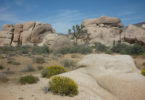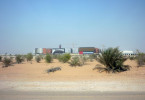The Matador Travel Network just published my piece about my German ancestral roots in the seed trading business and how it relates to California’s narrowly defeated Proposition 37 which would have required food products made from plants or animals with genetically modified organisms (GMO) to be labelled as such. My uncle, Wolfgang Ziegler, the last in his trade, features prominently.

Wolfgang Ziegler at the Seed Museum in Gönningen, Germany.
This is a story I’ve been wanting to tell for a while, and I’m pretty psyched to finally have found an excuse to write about it. There’s more to it, but this is a good intro. If the subject floats your boat, take a trip to Matador to get the whole scoop…
How the US is behind the rest of the world in GMO policy
On the state of the anti-GMO movement in America.
I come from a long line of seed traders in the small village of Gönningen in the Swabian region of Germany. As far back as the 17th century, my ancestors were traveling all over Europe, selling tulip, hyacinth, and narcissus bulbs and heirloom tubers, from the Netherlands to the Black Sea. In the 18th century, these intrepid villagers took their high-value seeds all the way down the Mississippi River Valley, traveling by foot, ship, and train via Liverpool and New York all the way to Memphis, Tennessee.
Books have been written and films have been made in Germany to document this important piece of history, not just for the entertainment value of this pre-television version of The Amazing Race, but because the very idea of small-town merchants disseminating saved seeds has all but become a thing of the past, thanks to giant agribusiness conglomerates like BASF, DuPont, and Monsanto. When my uncle, Wolfgang Ziegler, closed his small seed store a few years ago, he was the last member on my mother’s side of the family to have called himself a seed trader.
Fast forward to November 6th, 2012, an ocean, continent, and centuries away from the Gönningen of yore: In the State of California, USA, residents are being asked to vote on Proposition 37, a referendum whose passing would require food products made from plants or animals with genetically modified organisms (GMO) to be labelled as such.
Read more…








Wonderful post with great personal history weaved into an issue of paramount importance for this country and beyond. I always feel fulfilled when I read your posts. I know they will be substantive and well written.
Thanks John. So glad you enjoyed the read and continue to check out my musings. One of these days there will be beer involved in our exchanges. : )
Just as long as it’s naturally brewed! We’re behind in this category too by the way. When I was in Germany I was amazed how great the beer was. Like a meal!
yeah, but the U.S. has been catching up fast. Lots of good beers here now, and you can get all the German ones too. Still, nothing like sitting in a beer garden in Bavaria…
Congrats on publishing this important article Sven. Uncle Wolfgang sounds like an amazing person and he’s right about wondering why we weren’t asked in the first place about using genetically modified organisms. The notion of “playing God” is interesting and caused me to think where is organized religion on this? You hear the uproar about teaching evolution and stem cell research, but changing the food supply? I bet your ancestors came through my area too since the Ohio River Valley has such a strong German immigrant history.
Yes, he’s a really great person and an amazing storyteller. He has all these stories about all the ancestors and their trade routes, and I got to record him talking about it a few years ago. Once I go through all the transcripts I plan to write something more in-depth about the details of these journeys. One cool thing was that in 2009 when then newly-minted President Obama took his inaugural train ride from Philly to Washington D.C. that tracked Lincoln’s, Wolfgang realized that his forebears must have been on that same train around Lincoln’s time. He’d always wondered how they made it down south, and then seeing the first black president taking that route, a light went off in his head. Neat. The American part of the family’s history is a bit murky, but I’ll keep researching it, because it’s really fascinating.
Reading about your family’s history as seed-traders sure seems to ring true to who you are today, Sven. It’s genetic and I hope they never get to change yours. 🙂
Thanks for the important information and your upbeat outlook, from which your readers take heart.
Thanks for stopping by, Pam. I’m just sort of discovering this part of my family, and it does make a lot of sense. While not a farmer or seed trader I do feel like I deal in the seeds of ideas and inspiration and I’m looking forward to using some of this knowledge about my roots in coming literary explorations.